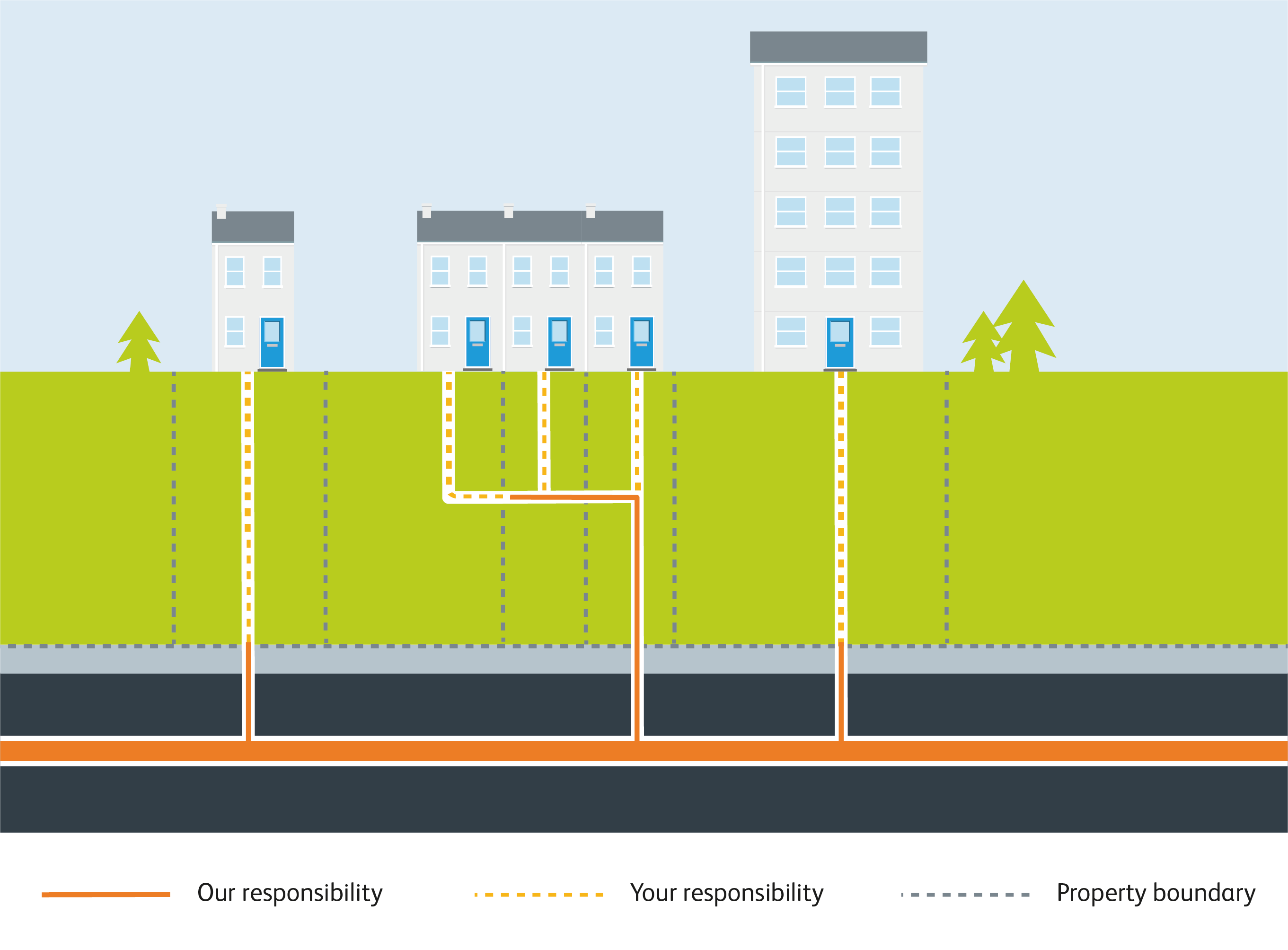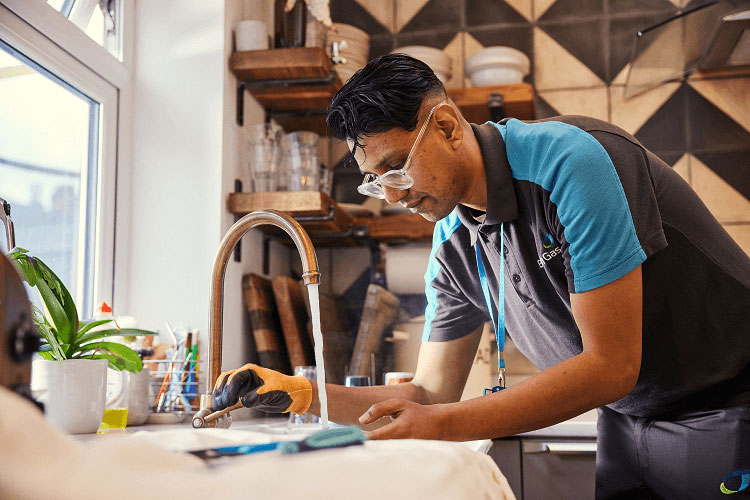Blockages
Blockages in pipes can be nasty, stopping waste from leaving your property.
You may have a blockage if:
- You find it hard to flush your toilet.
- Your sink or bath empties very slowly.
- You notice a bad smell coming from your drains.
When wastewater is unable to flow away it can come back up from the toilet or sink, flooding your home. It's easy to avoid blockages, just be sure to bin any item that's not pee, poo, or toilet paper.
What causes blockages?
Sewers are only designed to take water from toilets, sinks, baths and showers along with human waste and toilet tissue. Everything else should be put in the bin.
Blockages are often caused by:
- Fat, oil and food scraps that become solid in pipes.
- Wet wipes – even the ones labelled ‘flushable’ block your pipes.
- Sanitary items, including towels and tampons.
How do I know if the blockage is in my home?
If the blockage is in your home, it’s your responsibility to unblock it. These signs may show it's in your home:
- Your neighbours aren't having problems with their drains
- Your property doesn’t share a drain with any others
- There’s no other flooding in the local area
- Your upstairs facilities are impacted but downstairs is working - this suggests an internal blockage
- If the drain or sewer access point is clear, it's likely the blockage is within your home
Who is responsible?

We repair and clean the pipes that carry wastewater from your street to our treatment works. Property owners are responsible for the pipes in the homes and the ones connecting to our sewers.
A blockage may be the property owner’s responsibility if:
- Only one home is having problems
- The property doesn’t share a drain with any others
- There's no other flooding in the local area.
It may be our responsibility if we have public sewers in the area and at least one of the following applies:
- The problem is outside your property boundary
- More than one property is having problems
Having problems?
If you think you have a blockage within your drains or sewer, we advise you contact a plumber. Many home insurance providers or home protection includes drainage cover, so they may also be able to help.
If you think the blockage is in a section of pipework that's our responsibility, please report it to us. We'll send someone to look at it as soon as we can. If we find a blockage and it's in a section of pipework that's your responsibility, our engineer will discuss this with you.

Keep your home flowing with Plumbing and Drains cover
More than a million customers trust British Gas to sort out blocked drains, clogged pipes and more. Join them with expert Plumbing and Drains cover for just £4.50 a month*.
- Unlimited repairs and call-outs
- Access to thousands of trusted engineers
- No hidden costs with all parts and labour included
*£4.50 a month for the first year. Homeowners and new customers only. £60 excess per completed repair. Terms and exclusions apply, see website for full details.
What about blockages outside my home?
If you’ve spotted a drain that’s leaking sewage and endangering wildlife or the environment, please report the problem to us. We’ll ask you:
- What you saw
- When you saw it
- Where you saw it (including a postcode, road name or any local landmarks or features)
- Whether sewage is entering a river or any other watercourse
We aim to attend within 48 hours in normal weather conditions but 72 hours when exceptionally busy. We’ll confirm responsibilities and let you know what the next steps are.
If it's our responsibility, we’ll:
- Investigate what’s happened and why
- Assess the impact on the environment
- Share our findings with the Environment Agency, who look after all of England’s waterways
- Clean up and put a prevention plan in place
If it's not our responsibility, we’ll contact the relevant authorities or point you in the right direction so that it gets sorted as quickly as possible.
Bin it – don’t block it
It's easy to avoid blockages in your home. Remember the three Ps: pee, poo and (toilet) paper – nothing else should be flushed!
- Wrap sanitary items, nappies, wipes and condoms in toilet paper and put them in the bin
- Leave leftover cooking oil, fat and food to cool and put it in the bin
- Take chemicals, solvents, engine oil and paint to your local refuse or recycling site
- Take medicines, tablets, syringes and needles to your pharmacist, hospital or health authority for safe disposal
Learn more about what we’re doing to prevent blockages and how you can avoid blockages at home. After all, life flows better when you bin it - don’t block it.
WhatsApp us
Message us on WhatsApp, so you can get on with your day and respond at your pace. We're available 24/7.
